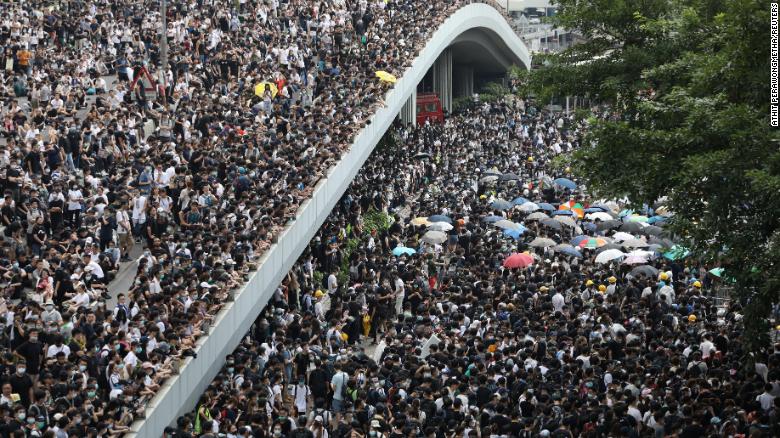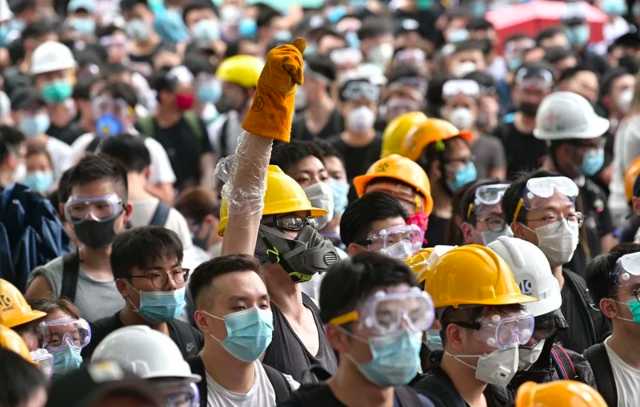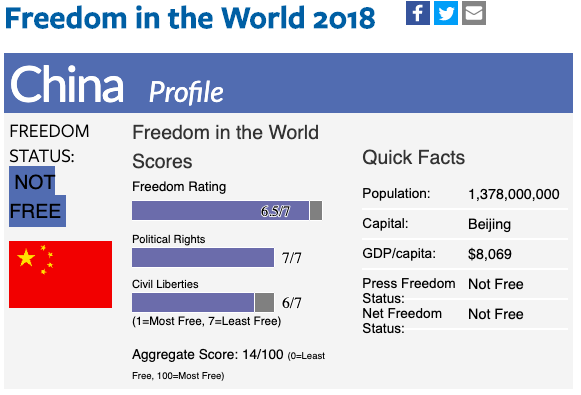Here's Why Tens Of Thousands In Hong Kong Are Taking To The Streets Again
"No legalised kidnapping of Hong Kong people to China."
Tens of thousands of protesters flooded the streets of Hong Kong earlier today, 12 June, to surround the city's Legislative Council
TIME reported that the demonstration today was targeted at postponing a debate by lawmakers over a controversial extradition bill – which would allow anyone to be sent to China for prosecution.
Although the debate has since been delayed, a vote on the bill has been scheduled for next week.
While protesters had aimed for a peaceful demonstration today, the Hong Kong police were filmed firing tear gas and rubber bullets into the crowd to disperse them
CNN reported an observer as saying that it was "scary and outrageous" of the authorities to use tear gas on peaceful protesters.
"I was observing the peaceful assembly on the road from the footbridge. Suddenly, I heard a great sound and immediately lots of white fumes appeared," the witness revealed.
"Many people were very scared... Everybody felt uncomfortable. It's scary and outrageous to see how the police suddenly used tear gas on people in the area when everyone was so peaceful," he added.
Long-range pepper sprays were also allegedly used on journalists in the area.
The extradition bill has been labeled with a Cantonese phrase which rhymes with witnessing the death of a loved one
The label comes as critics claim the bill would allow anyone in Hong Kong to be handed over to Chinese authorities for political reasons and undermine the city's semi-autonomous legal system, according to The Reporter.
Despite pledges by the Hong Kong government to not hand over political prisoners, protesters and foreign media believe that the Chinese government is capable of extraditing them under other offences.
Opposers of the bill have also claimed that citizens critical of the Chinese government would be subject to the country's flawed judicial system
BBC reported activists as saying that people could face arbitrary detention, unfair trial, and torture if extradited to China under the new law.
For instance, a Hong Kong bookseller told BBC that he was abducted and detained in China four years ago for selling books critical of the Chinese government. He was charged with illegal operation of a bookstore.
The bookseller, who fled Hong Kong and moved to Taiwan in April this year, has been granted a temporary residency visa.
"I don't trust the government to guarantee my safety, or the safety of any Hong Kong resident," he said, according to BBC.
A 2018 report by Freedom House revealed that criminal trials in China often happen behind closed doors, and the conviction rate is estimated to be at least 98%
If the extradition bill is passed, criminal suspects could face excessive pretrial detention while lacking access to an independent legal counsel.
Moreover, cases that are politically sensitive have been subject to "guidance" from 'political-legal committees'. Human rights lawyers and activists have also been shown in state media giving what are believed to be forced confessions to their 'crimes'.



